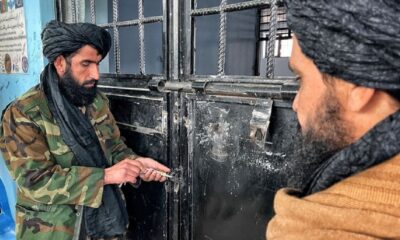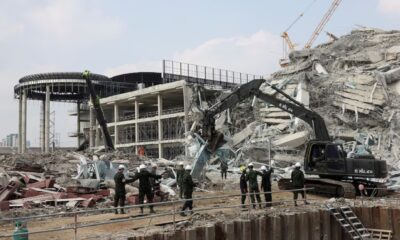Latest News
Former US diplomat: Sending diplomats back to Afghanistan would confer legitimacy on IEA
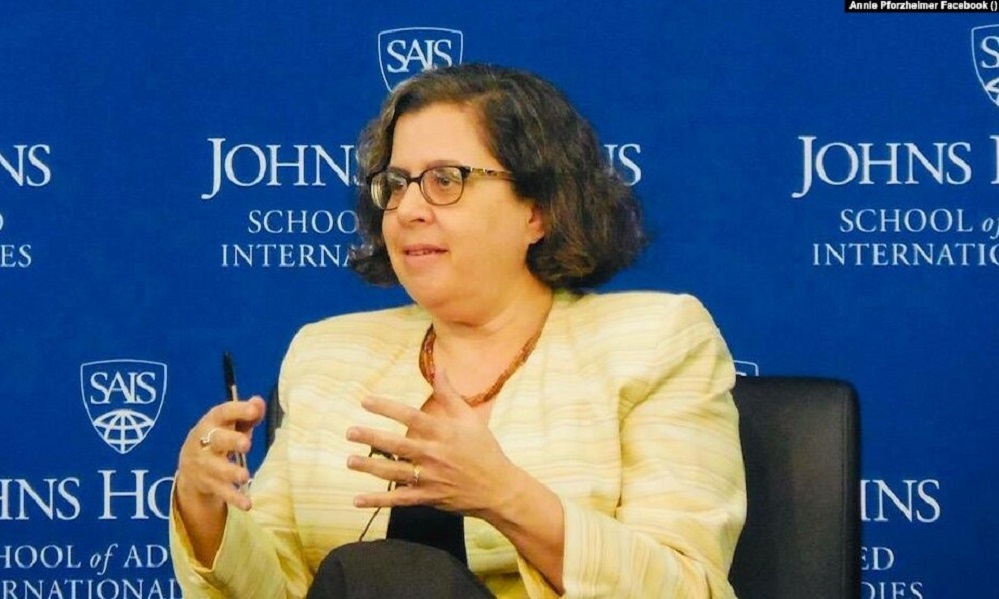
Amid reports of the US mulling the reopening of its consulate in Afghanistan, a former US diplomat and an Afghan diplomat have said that sending US diplomats back to Afghanistan without any concessions from the Islamic Emirate would not be neutral.
Annie Pforzheimer, former deputy chief of mission at the U.S. Embassy in Afghanistan, and Ashraf Haidari, Afghan ambassador to Sri Lanka (appointed by the former government), said in an opinion in The Hill that an operational US embassy in Kabul would lead to other countries opening their missions, serving as an endorsement of the IEA.
“After all, an embassy is not a newspaper bureau of independent foreign correspondents; it is an ecosystem of diplomats whose presence would confer an unearned legitimacy on the Taliban (IEA) and require a strengthening of ties,” they wrote.
They said that given ongoing security threats, U.S. diplomats would need IEA guards on the compound and armed IEA escorts to move around; those diplomats’ meetings with Afghans would be as honest as a visit to “a Soviet-era Potemkin village”.
According to them, so much has been lost since the “ill-fated” Doha Agreement was signed four years ago.
“The only lever of international suasion remaining rests with diplomatic recognition and paths to power and money, which the Taliban want to possess without changing their ideology or repression,” they wrote.
They called on the U.S. and like-minded countries to strengthen their commitment to the Afghan people, rather than to concede to the IEA.
They said that the future UN special envoy’s nearly impossible job is to be the voice of a unitary international position on Afghanistan.
Earlier, VOA reported that the United States is reviewing the possibility of reopening its consulate in Afghanistan under the Islamic Emirate rule without formally recognizing it as a government.
US officials, however, rejected the report.
Latest News
About $80 billion worth of US military equipment abandoned in Afghanistan: Vance

US Vice President JD Vance said on Friday that Joe Biden administration left about $80 billion worth of military equipment in Afghanistan, which was a “catastrophic error.”
Vance made the remarks during a visit to a military base in Greenland.
He also said the Biden administration’s “catastrophic error” led to the deaths of 13 US soldiers in an attack during the evacuation at Kabul airport in August 2021.
Earlier, US President Donald Trump also criticized the abandonment of military equipment in Afghanistan and called for its return.
The Islamic Emirate, however, has said that the weapons left by the US in Afghanistan belong to the Afghans and will not be returned.
Latest News
IEA frees over 2,400 prisoners on the occasion of Eid
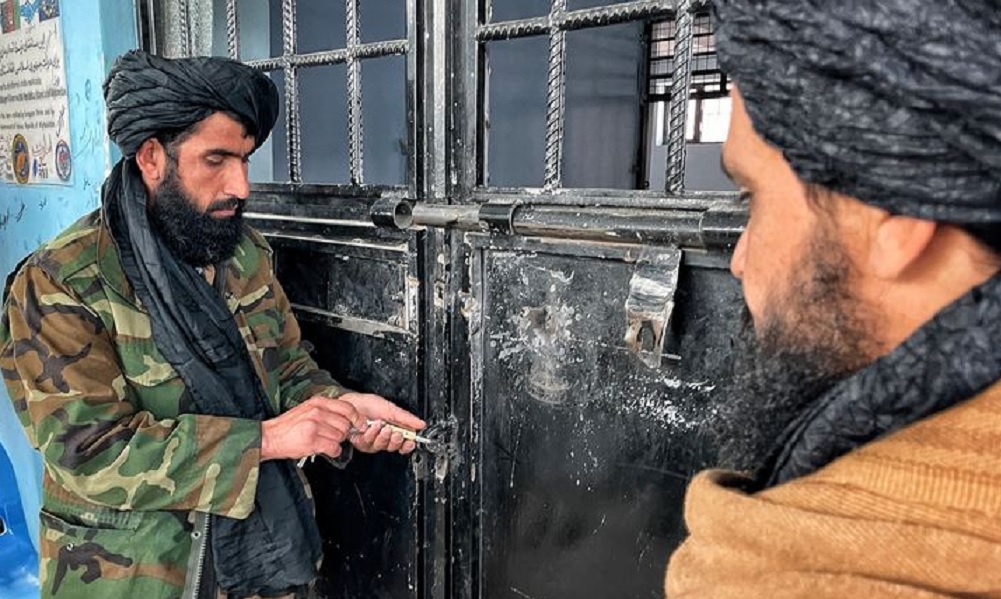
The Supreme Court announced on Saturday that based on the ruling of the supreme leader of the Islamic Emirate, 2,463 prisoners have been pardoned and released on the occasion of Eid al-Fitr.
The court said in a statement that the prison terms of another 3,152 prisoners have been reduced.
Eid in Afghanistan will be celebrated on Sunday or Monday, depending on the moon sighting.
Latest News
Economic Commission approves feasibility studies of four dams in different provinces

The Office of the Deputy Prime Minister for Economic Affairs on Saturday announced that feasibility studies of dams in four provinces of the country will begin this solar year.
The Economic Commission, led by Deputy PM Mullah Abdul Ghani Baradar, in its recent meeting decided to include the survey and feasibility projects of Grumby Dam in Maidan Wardak, Qara Tiri Dam in Balkh, Shana Nari Dam in Kandahar, and Wuch Nari Dam in Paktia in the budget for the fiscal year 1404.
In the meeting, the issues of construction of the Kandahar bypass highway, construction of Arghistan Dam, 90 km of electricity line from Kabul to Jalalabad, and completion of Sheikh Misri substation in Jalalabad were also discussed, and it was decided that the Ministry of Finance will allocate the revenues obtained from the Ganda Kotal lead and zinc mine in Yakawlang district of Bamyan province to these projects.
The Economic Commission meeting also approved a plan for the private sector’s investment in a 40 megawatts solar power generation project in the Hesar Shahi Industrial Park in Nangarhar province. According the plan, the private sector will invest $50.69 million in the project.
-

 Sport5 days ago
Sport5 days agoACB names Afghanistan A squad for tri-nation series
-
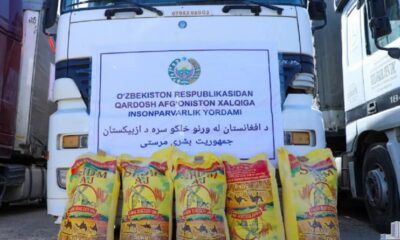
 Latest News5 days ago
Latest News5 days agoUzbekistan sends essential food aid to Afghanistan
-

 International Sports4 days ago
International Sports4 days agoIPL 2025: Last over drama; Ashutosh Sharma clinches win for Delhi Capitals
-
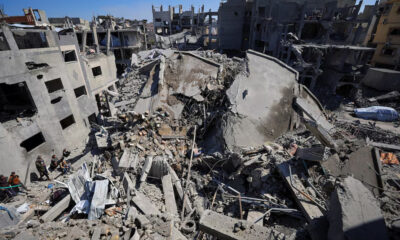
 Regional4 days ago
Regional4 days agoEgypt makes new proposal to restore Gaza truce as Israeli strikes kill 65
-

 Sport4 days ago
Sport4 days agoAfghanistan eliminated from Asian Beach Soccer Championship
-
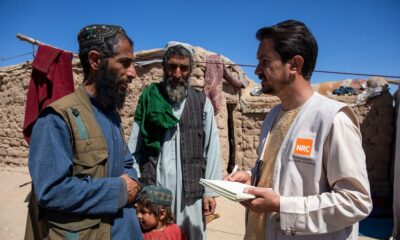
 Latest News4 days ago
Latest News4 days agoNorwegian Refugee Council cuts back on essential humanitarian services in Afghanistan
-
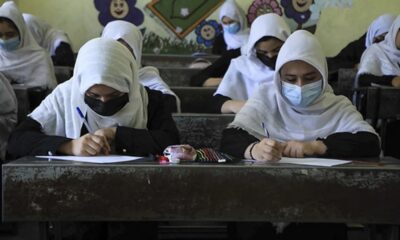
 Latest News4 days ago
Latest News4 days agoUN warns over 4 million Afghan girls will be deprived of education by 2030 if ban continues
-

 World3 days ago
World3 days agoSecretive Chinese network tries to lure fired US federal workers, research shows




